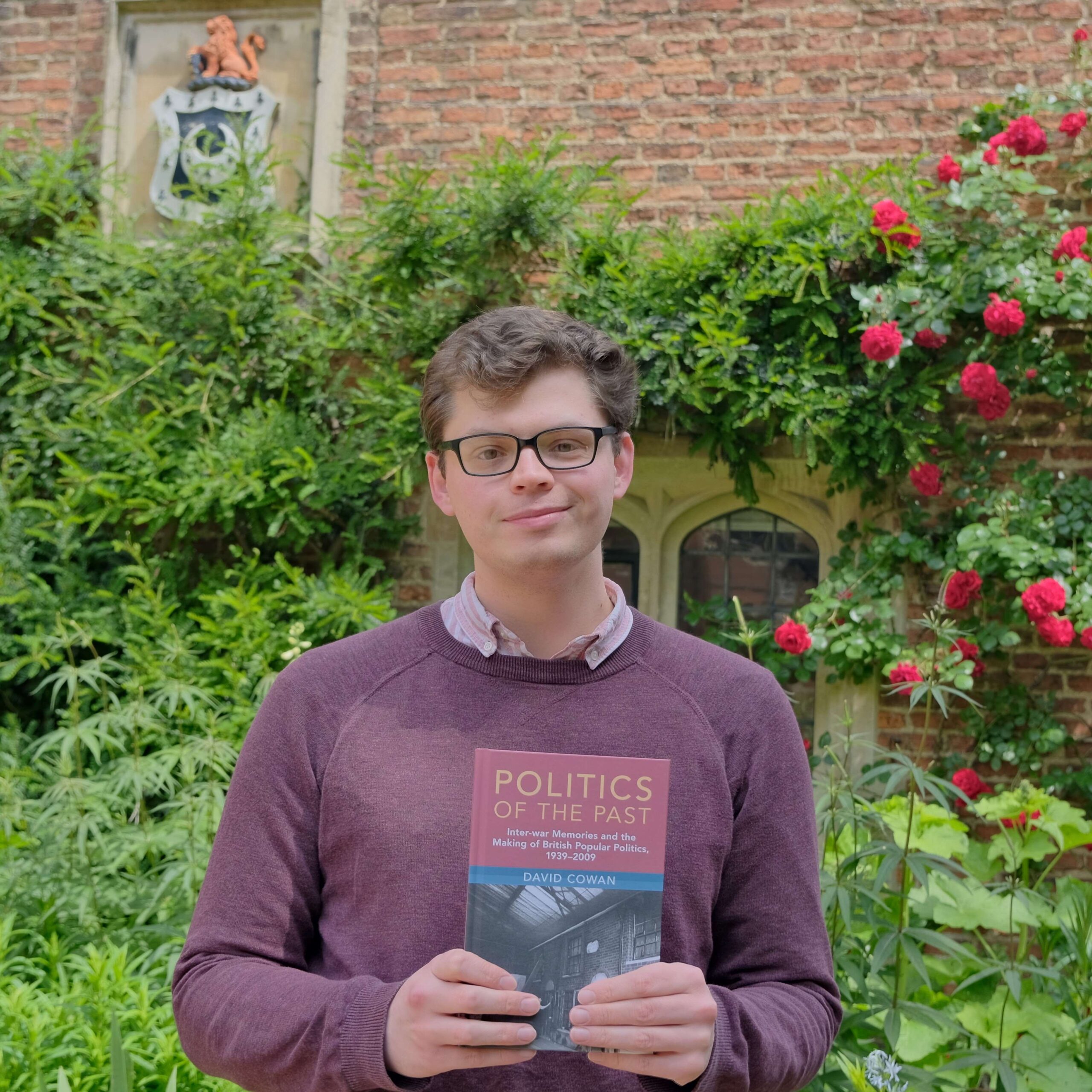Dr David Cowan, a History Fellow at Trinity Hall, Cambridge, has achieved a significant milestone in his academic career. His first book, “Politics of the Past: Inter-war Memories and the Making of British Popular Politics, 1939–2009,” which began as part of his PhD project completed in 2019, is now published by Cambridge University Press. Spanning eight years of research and writing, the book’s appearance on the shelves of the Cambridge University Press bookshop is a “big moment” for Cowan. Reflecting on this achievement, he notes, “It’s very nice seeing it come together but also very daunting having it out in the world: how will other academics react to it?”
Shaping Political Memory: a Journey through the “Politics of the Past”
Posted:
10 Jun 2024

The Essence of “Politics of the Past”
“Politics of the Past” explores how family memories have shaped ordinary British people’s political thought from 1939 to 2009. Cowan examines how stories from the inter-war period (1918-1939) influenced political attitudes and debates in post-war Britain. He argues against the assumption that the British public has been generally disengaged from politics, suggesting instead that family narratives about deprivation and prosperity have had a lasting impact on political views.
One notable example is the chapter on the National Health Service (NHS). During the 1970s, when the NHS faced significant challenges, public debates on improving waiting times often positively referenced pre-NHS memories of having to pay for medical care. Cowan explains, “They were offering solutions based on the family stories they had heard: paying could make people more cautious about asking to see a doctor.” These personal stories provided specific insights into public sentiment and historical context.
Research Methodology
Cowan’s research involved examining “raw” data collected by sociologists and other academics over several decades. These researchers had gathered extensive interview data for their studies, which Cowan re-examined to uncover new perspectives. “Looking at the data before they had analysed it, I might get something different or look at elements they would have ignored,” Cowan says. This approach allowed him to capture the voices of ordinary people, revealing how their personal and familial narratives contributed to broader political conversations.
An unexpected finding was the limited influence of political parties on individual memories. “People were not parroting politicians but were talking about issues in a much more familial way,” Cowan notes. Even when individuals identified with a political party, their stories often included personal grievances and nuanced views that differed from official party lines. This highlighted the significance of everyday language in political discussions and how political affiliations could be deeply rooted in historical and generational contexts.
Themes and Future Directions
“Politics of the Past” covers themes such as housing, global politics, and the NHS. Housing was a critical issue in post-war Britain due to the effects of bombing and the preceding depression. The book also explores the impact of family stories among Jewish refugees, where memories of the 1930s focused on the beginnings of the Holocaust rather than the Depression.
A particularly enjoyable aspect of the research for Cowan was traveling to the various locations mentioned in the book to “get a feel” for the environments in which his subjects lived. “As an expat Scot, it was particularly interesting to visit and write about Glasgow,” he remarks.
Looking ahead, Dr Cowan is working on new projects. One is a biography of a 20th-century activist who transitioned from a cruise ship waiter to working in the early anti-apartheid movement. The other is a larger project examining British attitudes toward the rich.
“Politics of the Past” examines how the stories inherited from families continue to influence the political landscape. Through his work, Dr Cowan demonstrates that memory, though sometimes imprecise, plays a crucial role in shaping political consciousness through stories across generations. As for more recent events and the stories they might produce, Dr Cowan believes that collective experiences, such as the COVID-19 pandemic and Brexit, will provide new narratives that will shape political ideas in the future.